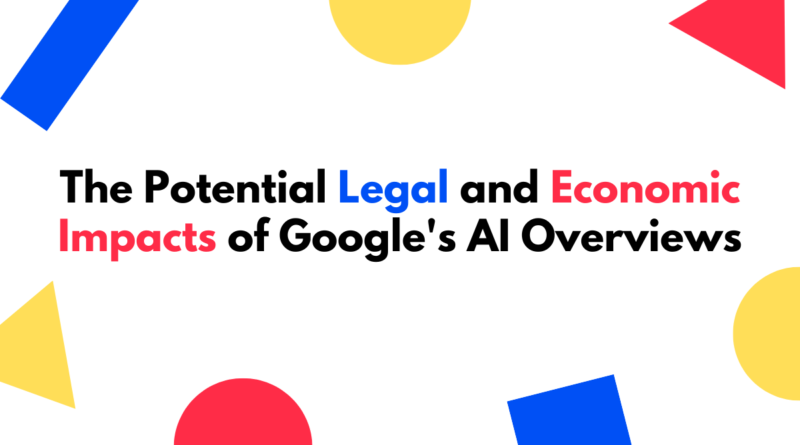The Potential Legal and Economic Impacts of Google’s AI Overviews
Google’s launching of AI Overviews in Search has not only brought up accuracy and relevancy concerns, but has also raised discussions about likely legal and economic implications of this new feature. As the presence of AI-generated summaries increases on search results pages, it is important to examine their likely impact on different aspects of the digital landscape.
Legal Concerns: Copyright and Regulation
One key legal concern about Google’s AI Overviews is the potential infringement on copyrights. This means that Google’s AI may be violating intellectual property rights, particularly for publishers or content creators by summarizing website content without proper attribution. Such a situation brings into question whether it is legal to use AI to make summaries from copyrighted material and if so, how they will be used and attributed.
Further, speedy deployment of AI technology in search results is causing regulatory difficulties. In order to regulate AI some regions such as European Union, United States, China among others have begun taking steps concerning aspects like market competition issues, privacy concerns ethical considerations as well as financial stability risks. Nevertheless, there is considerable uncertainty with regard to defining AI legally thereby making it difficult to develop relevant regulations for tackling the various issues surrounding AI Overviews.
Economic Impacts: Publisher Revenue and Market Dynamics
The introduction of Google’s Ai overviews has had a significant impact on publisher traffic and revenue. After introductions of Al summaries, many publishers are now witnessing reduced organic traffic because summarized contents are given priority over publisher websites translating into possible financial losses. Lower traffic can make publishers lose $2 billion in ads revenues due to Ai overviews according to estimates.
Publishers are responding through collaborations with alternative platforms as well as vendors who can help them monetize their content better as follows: Some publishers have chosen OpenAI and other third-party vendors for enabling access new revenue streams and keeping visibility in search results alive. Also smaller sites together with independent publishers may struggle to adapt to the changing search landscape in order to compete with AI-generated content.
Future Implications: Balancing Innovation and Regulation
As long as AI technology keeps advancing, there will be a need for striking balance between innovation and regulation in the digital ecosystem. For regulators, this means addressing legal and ethical concerns surrounding Google’s AI Overviews so that intellectual property rights are protected while fair competition is maintained within the digital marketplace. Nevertheless, businesses together with content creators must adjust to the new dynamics of search and devise alternative strategies of being visible and earning income from an AI-driven search era.
Summarily, Google’s AI Overviews have multifaceted legal and economic impacts that demand a nuanced approach towards addressing the challenges and opportunities posed by AI generated content on search results. By navigating the legal landscape, fostering innovation, and adapting to evolving market dynamics, stakeholders can harness the potential of AI technology while mitigating its possible risks.

Pingback: Optimizing Your Content for Google's AI Overviews - Zing Newz